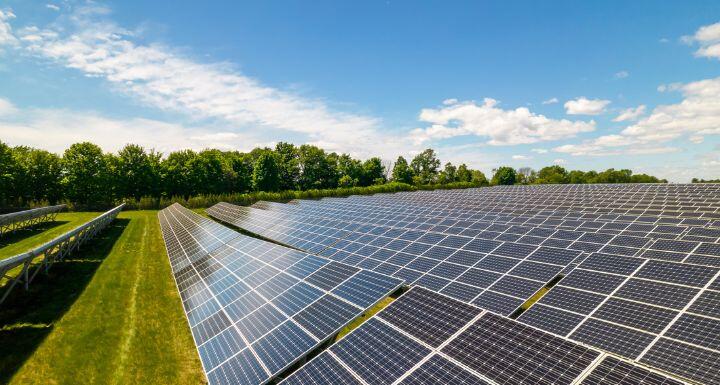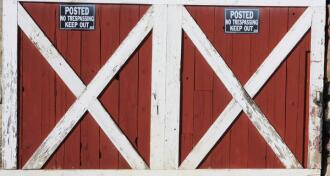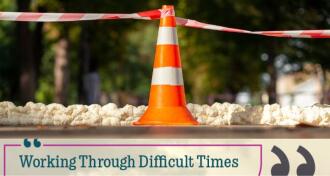In 2007, the North Carolina General Assembly established the Renewable Energy Efficiency Portfolio Standards ("Standards"), which required that all investor-owned utilities in the state obtain 12.5% of their energy needs from eligible renewable energy sources (the requirement is 10% for rural electric co-ops and municipal electric suppliers).
One way a utility may meet these requirements is by using power generated by solar energy resources.
The effect of the Standards has been noticeable in North Carolina: instead of acres and acres of corn, tobacco, or soybeans, fields of solar panels now pepper the landscape.
A 2022 report by Environment America Research and Policy Center revealed that between 2012 and 2021, North Carolina's solar facilities went from producing 185 gigawatt hours of power to producing 10,373 gigawatt hours, fourth in the nation in solar growth.
A 2022 report by the North Carolina Department of Environmental Quality (NCDEQ) indicated that between 2007 and 2020, 661 solar facilities larger than 1 megawatt came online, and many more have come online since.
Families who have farmed their land for generations are driving this increase, deciding to forego replanting their fields and instead lease to solar energy developers for an annual rent of $1,000 per acre or more. For some new solar landlords, it may be a purely financial calculation (an acre that may rent for $1,000 for solar panels may only fetch $50-100 for farming), and for others, it may be a desire to "go green."
Regardless of the reasons landowners might have for entering into a lease with a solar energy provider, there are several areas of concern you should consider prior to tying up your land with leases that often extend for 40 years or more.
Solar Leases and Long Due Diligence Periods
A common provision in solar leases is a due diligence period potentially lasting three to four years during which the solar energy provider has the unilateral right to perform certain inspections and studies in order to decide whether or not it is desirable or feasible to use your land as a "solar farm."
While early solar farm leases provided for little or no due diligence fees to be paid to the landowner, solar providers, recognizing the effect that "tying up your property" for 3-4 years can have, have begun offering reasonable due diligence fees to compensate an owner for the period the provider needs to inspect your property and secure a power purchase agreement with a power company.
This means two things to you: first, and most importantly, your prospective tenant will not be obligated to pay you rent for up to four years, if ever. If the solar energy provider decides, "in its sole discretion" or "sole judgment" (meaning, for any reason or no reason), that your property does not meet its needs, it can terminate its lease, only having paid you the due diligence fees.
The reason for passing on your property may have nothing to do with the property itself: the provider may not have reached an agreement with an end-user of the solar energy, or it may determine that the deal is just not economically feasible after all.
Second, it also means that for an extended period, there will be agents of the solar energy provider milling around your property which raises, among other things, liability issues (what if one of them gets hurt on your property?) and damage issues (what if one of them damages your property?).
Term of the Solar Lease
How long will your property be tied up for use as a solar farm? Like all leases, the term is negotiable.
In the case of a solar farm, the solar provider tenant will be making a substantial investment in the equipment it will install on your property, and it will have negotiated a long-term power purchase agreement with a power company, so it will expect a long-term commitment from you.
Leases of 20 to 30 years, with two or more five- or ten-year renewal periods, are common.
Rent Adjustments for Solar Leases
That $1,000 per acre may seem like fair rent now, but how about 20 years from now? Parties to a proposed solar lease can agree on the front end to fixed rent escalations throughout the term of the lease (for example, a 2% increase every year) or to increase the rent by using a formula where the rent increases with the cost of living or other financial indexes on certain dates.
Taxes on Leased Property
This is one that can hit your pocketbook hard and fast.
Many landowners take advantage of the state and local land use valuation programs whereby a property is taxed according to its actual use as a farm versus its highest and best use (which might be a shopping center or a new residential subdivision).
The land use valuation programs often save landowners thousands of dollars in yearly taxes.
Not only should you take into consideration the possible change in the tax burden for each year of the lease in setting the rent you will charge, but you should also recognize that three years of your prior tax savings, plus interest, will become due immediately if the use of your property as a farm is changed.
Despite the commonly-used term "solar farm," a solar farm does not meet the statutory requirements for a farm use valuation, so a solar lease would trigger deferred taxes being assessed by the County on your "former" farmland.
A well-drafted lease will address which party bears the burden of paying those immediately recaptured deferred taxes. The lease will also need to address which party is responsible for paying the taxes on a yearly basis during the term of the lease.
Re-Zoning and Land Use for Solar Farms
Your solar provider tenant may not be able to use your property for a solar farm if it is not zoned for such use. Your lease may provide that the tenant has the right to seek to have your property re-zoned and that you will cooperate in the process by executing whatever documents are required and taking whatever additional actions are needed, including attending zoning hearings.
Be aware that unless your lease is carefully drafted, your property may be re-zoned during the due diligence period, prior to the tenant being obligated to pay rent. If the tenant decides not to go through with the lease, you may be left with property zoned for a solar farm, which may limit your use of the property until you are able to have it re-zoned yet again, if you can.
And the re-zoning process itself can get heated. Despite the increase in the number of solar farms over the years, local governments and neighbors tend to be hesitant to welcome proposed solar projects.
In theory, local commissioners must remain neutral when applying local ordinances to a proposed solar project's special use permit application and even recuse themselves when, for example, they have voiced opposition to all solar farm developments.
These re-zoning proceedings typically involve expert testimony from the solar producer's engineers, appraisers, and attorneys and, in the most controversial cases, experts hired by nearby property owners to oppose the development.
Recently, Pender County voted against a special-use permit for a large-scale million solar project even after a court-ordered mediation. The brighter side of such solar cases is that North Carolina courts are increasingly scrutinizing the bounds of what local governments can and cannot do when evaluating your proposed solar farm.
Retaining Access to Your Adjacent Property
It is important that the landowner has a say in the location of the solar farm. If you are not leasing all of your property, you will obviously need access to the un-leased portion.
The site plan for the solar farm should take this into account by providing safe, all-weather access to the remainder of your property for vehicles and utilities.
Make sure that any surveys obtained by the tenant clearly depict all access roads, both inside and outside of the bounds of the solar farm.
Removal of Solar Farm Facilities
Fifty years from now, when your lease has expired, what will your property look like?
Does it look like a farm again?
Is it cleared and immediately useable?
If so, that's great, but how did it get that way?
A good lease will address whose obligation it is to remove the solar facilities (here's a hint – it shouldn't be yours) and how much of the facilities will be removed (another hint – all of them, including any underground structures), with the land returned to the condition existing at the commencement of the lease.
Recent action by the General Assembly has increased the burden on solar energy facility owners, including requiring them to register their facilities with NCDEQ, submit a decommissioning plan, and provide financial assurances that they will pay the decommissioning costs.
Local governments have also adopted ordinances governing the decommissioning of solar facilities, and those ordinances may be even stricter on operators than the State law.
Regardless, landowners should not rely on the legislature or their local government to ensure the site is properly decommissioned, or run the risk that the law will change prior to the end of the lease—the parties' rights and responsibilities with respect to decommissioning should be included in the lease.
Conclusion
There is no doubt that the green movement is here to stay, and government agencies, businesses, and individuals have responded. Look no further than the renewable energy industry in North Carolina.
With specific statutory requirements mandating the use of solar power, landowners will continue to be approached by solar energy providers looking for prime locations to install their facilities. A well-drafted solar farm lease will help ensure your new relationship is as profitable for you as it is for the solar providers.









